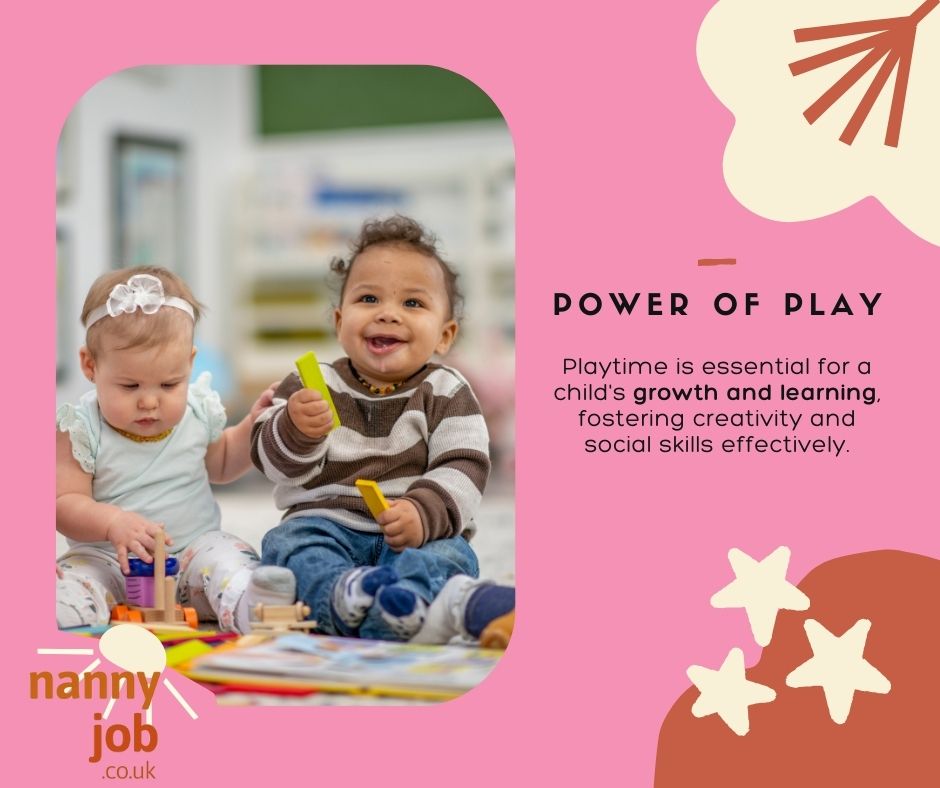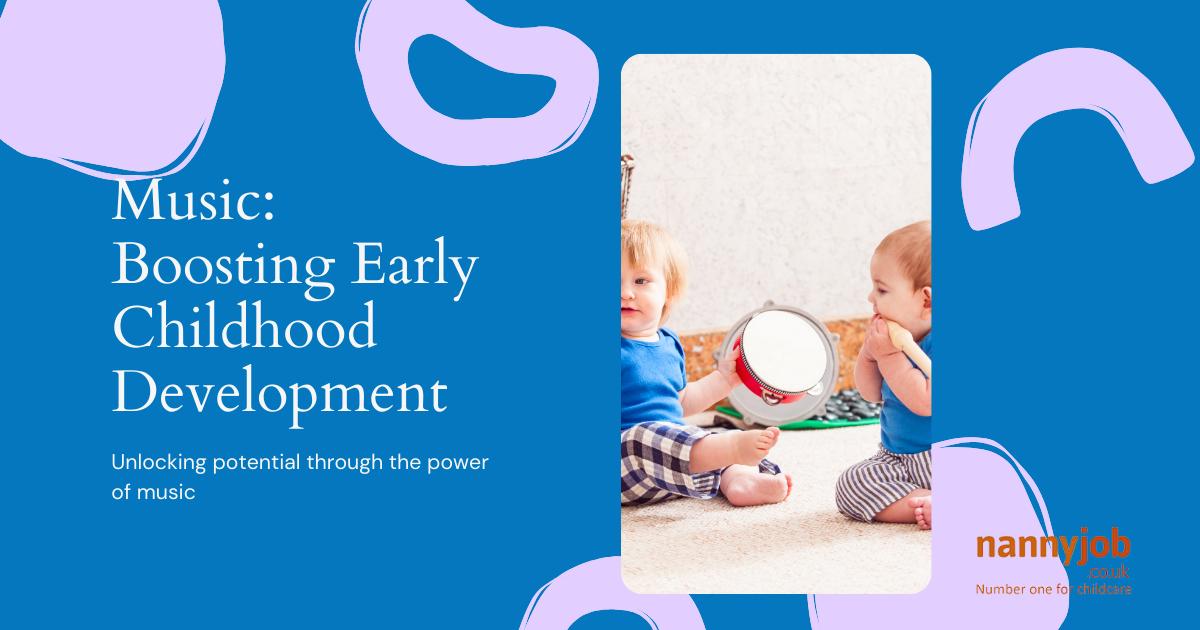Introduction
Music has a unique power to captivate, inspire, and even educate young minds. Beyond entertainment, music plays a valuable role in early childhood development, supporting cognitive, emotional, and social growth. Whether through singing, dancing, playing instruments, or simply listening, exposing children to music from an early age can have lifelong benefits. Here’s a look at why music is so impactful in early childhood and how parents, nannies, and caregivers can incorporate it into a child’s daily routine.
1. Boosts Cognitive Development
Music stimulates multiple areas of the brain, enhancing cognitive functions that play a key role in early learning. Engaging with music helps children develop memory, language, and problem-solving skills.
- Improves Memory and Recall: Songs with repetitive lyrics or melodies help children improve their memory. Nursery rhymes, for example, help children learn sequences, patterns, and information retention.
- Language Development: Music exposes children to different sounds and rhythms, supporting their ability to recognize and imitate sounds. Singing songs also helps build vocabulary and pronunciation.
- Enhanced Problem-Solving Skills: Learning an instrument or clapping along to a beat encourages children to think critically and solve problems as they learn timing, rhythm, and patterns.
Tip: Start with simple, repetitive songs and rhymes to make learning enjoyable and engaging. Singing nursery rhymes or songs with actions can also help reinforce concepts.
2. Supports Emotional Expression and Well-being
Music provides a healthy outlet for children to express their emotions. The sounds, lyrics, and tempo of a song can help children process and express feelings they might not yet have the words for.
- Emotional Expression: Listening to different types of music encourages children to recognize and express various emotions, from joy to calm to excitement.
- Reduces Anxiety: Calming music can help soothe and reduce anxiety, making it a great tool for bedtime routines, nap times, or quiet play.
- Builds Self-Esteem: Learning to sing or play a tune fosters a sense of accomplishment and confidence in children, contributing to positive self-esteem.
Tip: Create a “feelings playlist” with songs that convey different moods and let children choose a song to match how they feel. This helps them identify and express their emotions constructively.
3. Encourages Physical Development
Music and movement go hand in hand, encouraging children to use their bodies and improve physical coordination. Dancing, clapping, and moving to music help develop gross and fine motor skills.
- Gross Motor Skills: Dancing, jumping, and marching to music all help children develop coordination and balance.
- Fine Motor Skills: Playing instruments like drums, maracas, or xylophones requires children to use their hands, which builds dexterity and hand-eye coordination.
- Rhythm and Timing: Music helps children understand rhythm and timing, which are essential in physical activities and even later academic skills.
Tip: Incorporate movement-based music activities into the daily routine, such as a morning dance session or a “musical workout” that encourages children to move in time with the beat.
4. Enhances Social Skills and Cooperation
Music often involves group activities, whether it’s singing together, playing instruments, or dancing. These shared experiences foster social skills and teach children the importance of cooperation and communication.
- Encourages Teamwork: Group musical activities, like singing in a circle or playing simple instruments together, teach children to listen to others, take turns, and work as a team.
- Builds Empathy: Sharing music with others allows children to experience different emotions and perspectives, encouraging empathy and understanding.
- Promotes Communication: Music requires active listening and responding, helping children learn effective communication skills that benefit them in social situations.
Tip: Plan group musical activities, like sing-alongs or instrument circles, to give children a chance to experience the joy of creating music with others.
5. Improves Focus and Discipline
Engaging with music teaches children patience, discipline, and focus. Whether they’re learning to clap in time or play a simple tune, children benefit from concentrating on the task at hand.
- Encourages Patience and Persistence: Learning a new song or playing an instrument takes time and practice, helping children understand the value of perseverance.
- Builds Concentration Skills: Following a melody or rhythm encourages children to focus and stay on task, which can improve their attention span and discipline in other areas.
- Teaches Goal-Setting: Mastering a tune or rhythm can become a fun, achievable goal for young children, helping them learn how to set and accomplish goals.
Tip: Give children age-appropriate musical challenges, like clapping along to a beat or mastering a short song, to build their focus and discipline over time.
6. Fosters Creativity and Imagination
Music provides a rich landscape for children to explore their creativity and imagination. Through music, children can create their own tunes, make up lyrics, or dance in ways that express their individuality.
- Sparks Creativity: Encouraging children to improvise or come up with new movements to music helps them think creatively.
- Imaginative Play: Music inspires children to imagine different scenarios, like pretending to be animals while dancing or creating stories to go along with songs.
- Exploring Self-Expression: Through music, children can explore and express their unique personalities, creating a sense of identity and self-confidence.
Tip: Set aside time for “free play” with music, where children can dance, sing, or play instruments however they choose. This unstructured time allows them to explore music in their own way.
7. Incorporating Music into Daily Routines
Music can be a part of almost any daily routine, making it easy to integrate its benefits into a child’s life. Whether it’s singing a morning song, having a music-filled activity time, or creating a calming bedtime playlist, music enhances every part of the day.
- Morning Routine: Start the day with an upbeat song that energizes children for the day ahead.
- Mealtime Music: Play soothing music during mealtime to create a calm and positive atmosphere.
- Bedtime Music: Use calming, slow-paced music to help children wind down and prepare for sleep.
Tip: Create specific playlists for different parts of the day. For example, an “energy playlist” for playtime and a “calming playlist” for nap or bedtime.
Conclusion
The benefits of music in early childhood are vast, supporting everything from cognitive growth to social skills, physical development, and emotional well-being. By integrating music into daily routines, parents, nannies, and caregivers can give children a fun, enriching experience that enhances their growth and development. So, turn up the music, dance, sing, and let children explore the wonderful world of sounds and rhythms. The benefits will be felt for years to come!
















